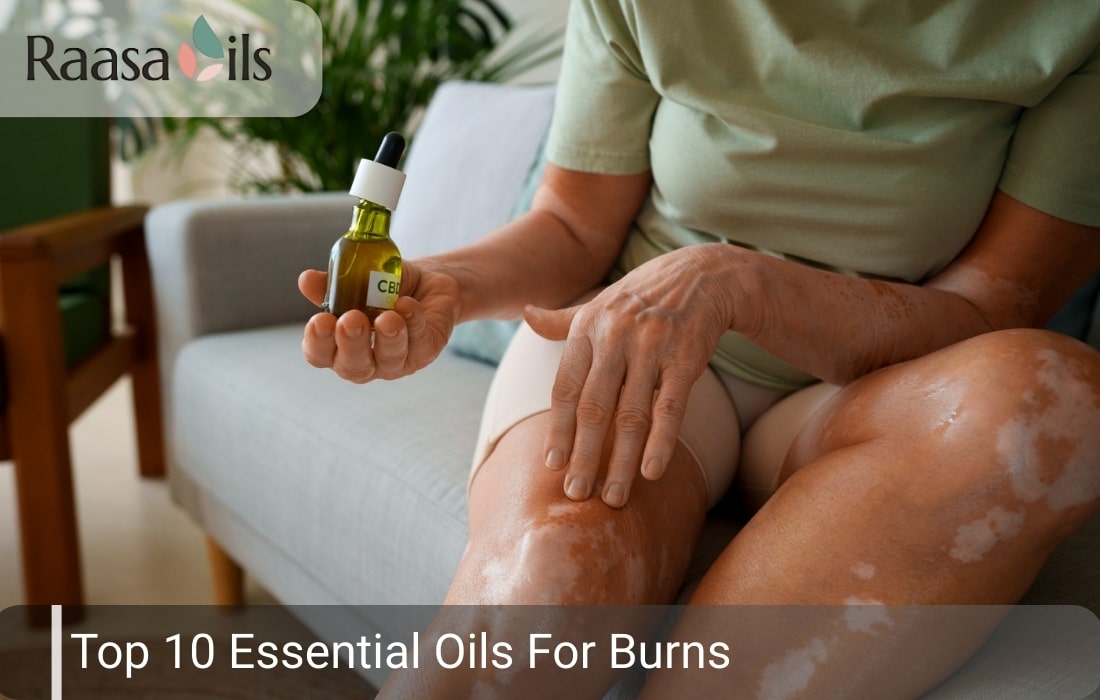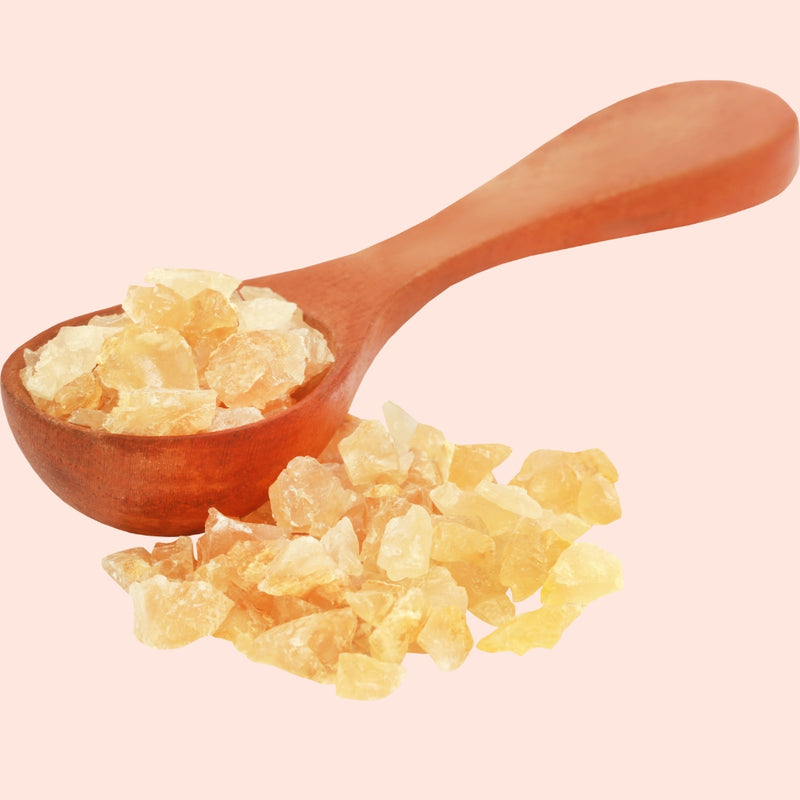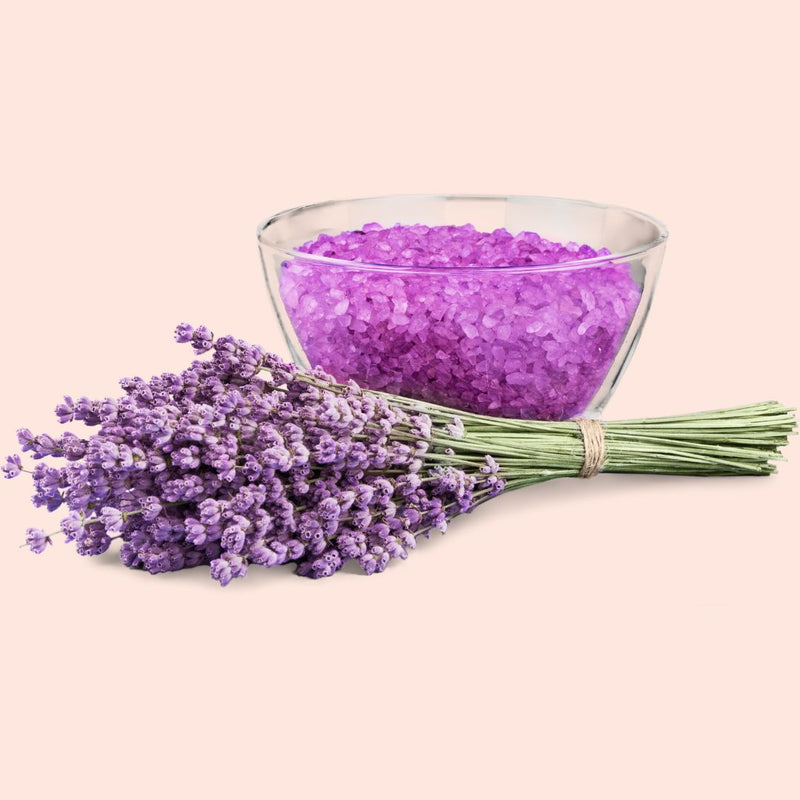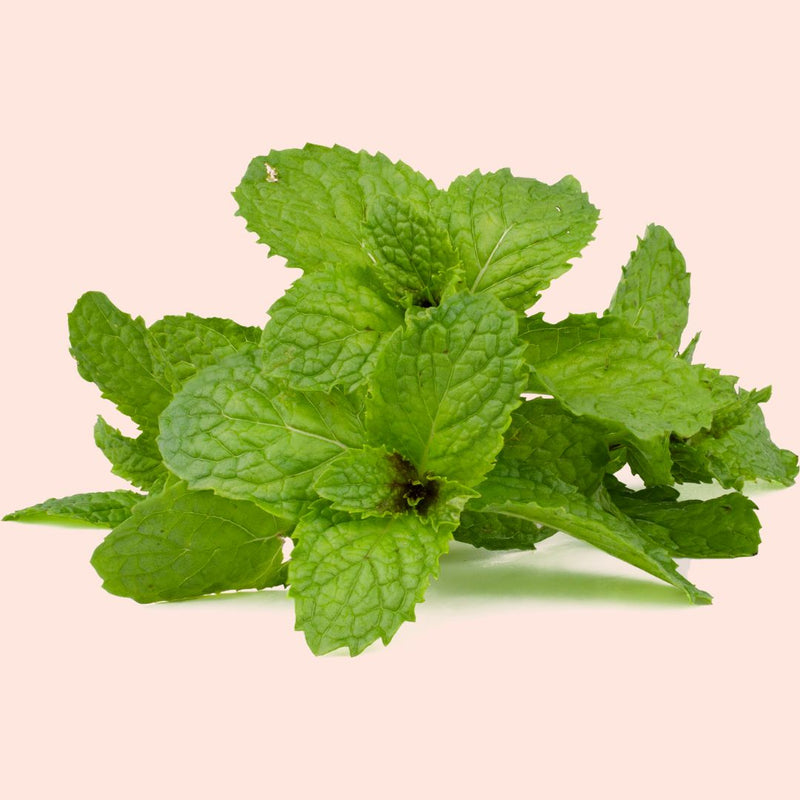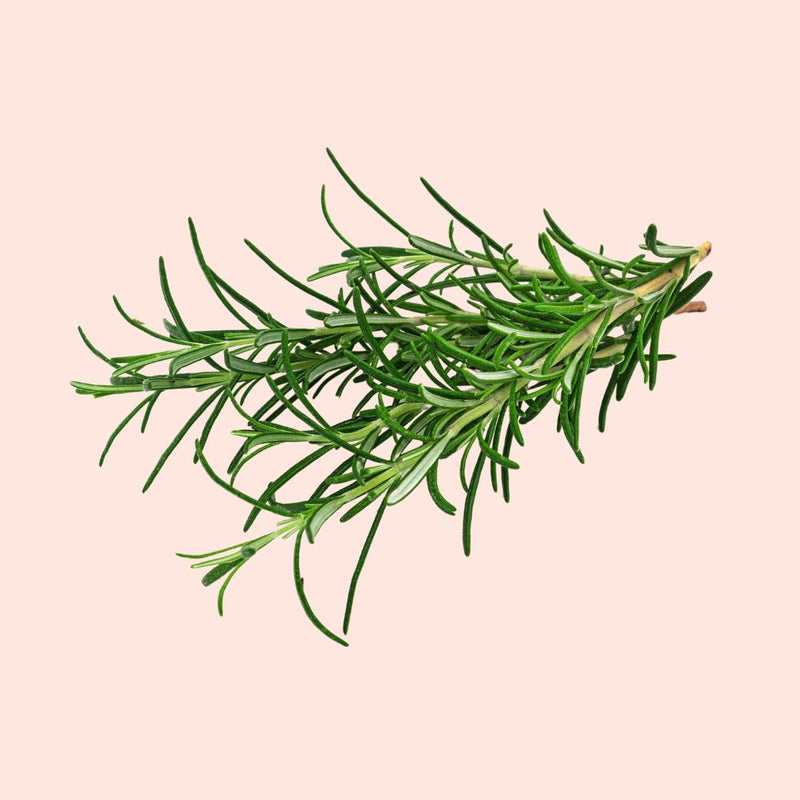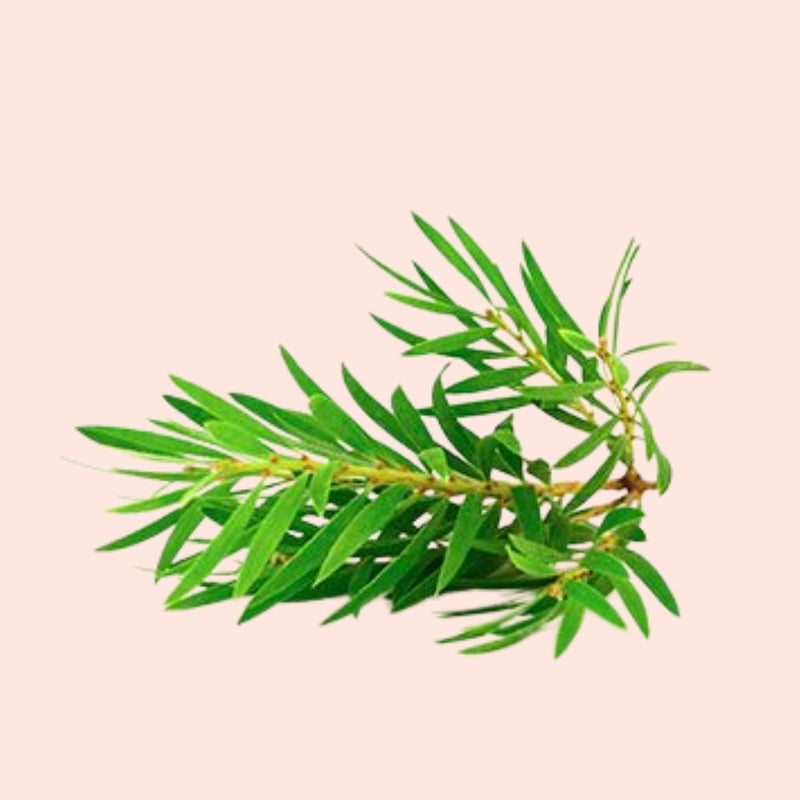Burns from either heat, chemicals, or friction might produce severe pain, redness, and discomfort. Even though cases of emergency first aid, such as applying water to chill the burn, are very important, natural medicines like essential oils can enhance the healing. Essential oils with their anti-inflammatory, antimicrobial, and calming effects can decrease pain, prevent infection, and lead to accelerated skin regeneration. They ought to, however, be diluted before use and used as a supplementary treatment in proper conjunction with proper medical attention. This article covers the 10 best essential oils to use on burns, along with their benefits and directions on how to make a blend to calm and heal the skin naturally.
Top 10 Essential Oils for Burns
Essential oils are capable of being a natural but effective supplementary offering to burn care. They are used to calm pain and inflammation and restore the skin. The subsequent oils are characterized by strong curative properties, which is why they can be recommended to heal mild burns and serve as rehabilitative means when applied safely and correctly.
1. Tea Tree Essential Oil for Burns
Tea tree essential oil is widely used and admired for its antimicrobial and antiseptic properties, which make it an excellent option in avoiding infection of a blister caused by a burn. Tea tree essential oil has anti-inflammatory properties that make it aid faster healing, reduce swelling, and redness. When applied to the affected area, it should always be diluted with a carrier oil as a means of avoiding irritation as well as securing its use.
2. Lavender Essential Oil for Burns
When it comes to the recommendations of the healings that may serve as a natural remedy to burns, lavender essential oil is probably the most suggested one, as it has relaxing and regenerating effects on the skin. It alleviates pain and diminishes redness, as well as scarring. Lavender Essential Oil is also known to alleviate stress connected to injuries via its relaxing scent. Apply it diluted, and it should be used regularly to achieve the best outcomes in the recovery of the burn.
3. Peppermint Essential Oil for Burns
Peppermint essential oil is well-known for its cooling and soothing properties, making it effective for relieving discomfort caused by burns. Peppermint essential oil also has mild anesthetic effects that can help reduce pain and inflammation in the affected area. The refreshing, minty aroma can uplift your mood and provide a sense of calm during the healing process. Due to its potency, peppermint oil must always be diluted with a carrier oil before applying topically to prevent skin irritation or sensitivity.
4. Frankincense Essential Oil for Burns
Frankincense essential oil is useful in skin regeneration, and when used, it takes time to decrease the scar made by burns on the skin. Frankincense Essential Oil is also anti-inflammatory, which soothes redness and irritation. Its earthy smell may soothe mental turmoil due to burns. Blending it with a carrier oil is always a must before it can be applied to the affected areas of skin.
5. Rosemary Essential Oil for Burns
Rosemary essential oil is valued for its ability to enhance blood circulation, which helps speed up the healing process of burn wounds. Its natural antibacterial properties make it effective in protecting burns from infection, reducing complications during recovery. The fresh, herbal aroma provides a soothing and calming effect, promoting relaxation throughout healing. To ensure safety and prevent skin irritation, always dilute rosemary essential oil with a carrier oil and apply it in low concentrations on sensitive or burned skin areas.
6. Cinnamon Essential Oil for Burns
The cinnamon essential oil contains high antimicrobial constituents, which have the potential to protect burns against infection. It has the effect of ensuring that there is a flow of blood, and this favors the healing of the skin. Cinnamon essential oil is very concentrated, and therefore, before using it to treat a topical spot, it has to be diluted many times. This is because when it comes in contact with the skin, those with sensitive skin may cause irritation or burning.
7. Lemon Essential Oil for Burns
Lemon essential oil offers powerful antiseptic benefits that help cleanse burns and reduce the risk of infections. Its high vitamin C content promotes skin regeneration, aiding in the healing process and helping to lighten burn marks over time. However, lemon essential oil increases your skin’s sensitivity to sunlight, so avoid sun exposure after application. Always dilute lemon essential oil well with a carrier oil before applying it to burned or sensitive skin to prevent irritation or adverse reactions.
8. Lemongrass Essential Oil for Burns
Lemongrass essential oil is known for its antibacterial and anti-inflammatory properties, making it very effective in preventing infection and soothing discomfort caused by burns. Lemongrass essential oil’s fresh, citrusy aroma can also help uplift your mood and ease anxiety during the recovery period. Because burns make the skin more sensitive, it’s crucial to use lemongrass oil in small, diluted amounts mixed with a carrier oil to avoid any irritation or sensitivity on delicate burn areas.
9. Orange Essential Oil for Burns
Orange essential oil is a gentle, soothing choice for mild burns, known for its uplifting citrus scent and calming effects on the mind. Orange essential oil contains antioxidants that support skin repair and help reduce inflammation, promoting faster healing while minimizing the risk of scarring. For safe use, always dilute orange essential oil with a carrier oil before applying to burned skin, ensuring it does not cause irritation or increased sensitivity during the healing process.
10. Oregano Essential Oil for Burns
Oregano essential oil is highly potent with strong antimicrobial and anti-inflammatory properties, making it effective in protecting burn wounds from bacterial infections. Oregano essential oil also stimulates blood circulation, which can speed up the healing process and reduce inflammation. However, due to its concentrated nature, oregano oil must be heavily diluted with a carrier oil before applying to burns, as undiluted use may cause irritation, redness, or worsen the condition of sensitive or damaged skin.
Essential Oil Blend for Burns
A carefully prepared essential oil blend can combine multiple healing properties, offering pain relief, infection prevention, and skin repair. This blend uses gentle yet powerful oils to help burns heal naturally and effectively. Always conduct a patch test before use and apply only to minor burns.
Ingredients
- 2 Drops of Lavender Essential Oil
- 2 Drops of Tea Tree Essential Oil
- 1 Drop of Frankincense Essential Oil
- 1 Tablespoon Aloe Vera Gel (carrier base)
Directions
- Mix the essential oils with aloe vera gel in a small glass container.
- Gently apply a thin layer to the burn area twice daily.
- Store in a cool, dark place. Discontinue use if any irritation occurs.
Frequently Asked Questions
When it comes to treating burns naturally, many people have questions about the safety, effectiveness, and proper use of essential oils. This section answers the most common queries, helping you understand which oils work best, how to use them safely, and which ones aid in scar reduction.
Q1. What is the best essential oil for a burn?
Ans: Lavender essential oil is often considered the best due to its soothing, anti-inflammatory, and skin-repairing properties.
Q2. What oil is good for burn scars?
Ans: Frankincense and rosehip oils are effective in reducing burn scars by promoting cell regeneration and improving skin texture.
Q3. How to use essential oils for burning?
Ans: Always have a carrier oil or aloe vera gel dissolve essential oils before placing them on burns. Gently apply and not to non-broken skin.
Conclusion
Essential oils may be one of the natural and non-damaging treatment methods for burn recovery. They work perfectly combined with traditional care as they have healing, curative, and protective properties. They should be used safely at all times, by diluting them and applying them to minor burns, and going to the hospital when there is serious injury.
DISCLAIMER
This content is for informational purposes only and is not a substitute for professional medical advice, diagnosis, or treatment. Always consult a healthcare provider before using essential oils for any health condition.

